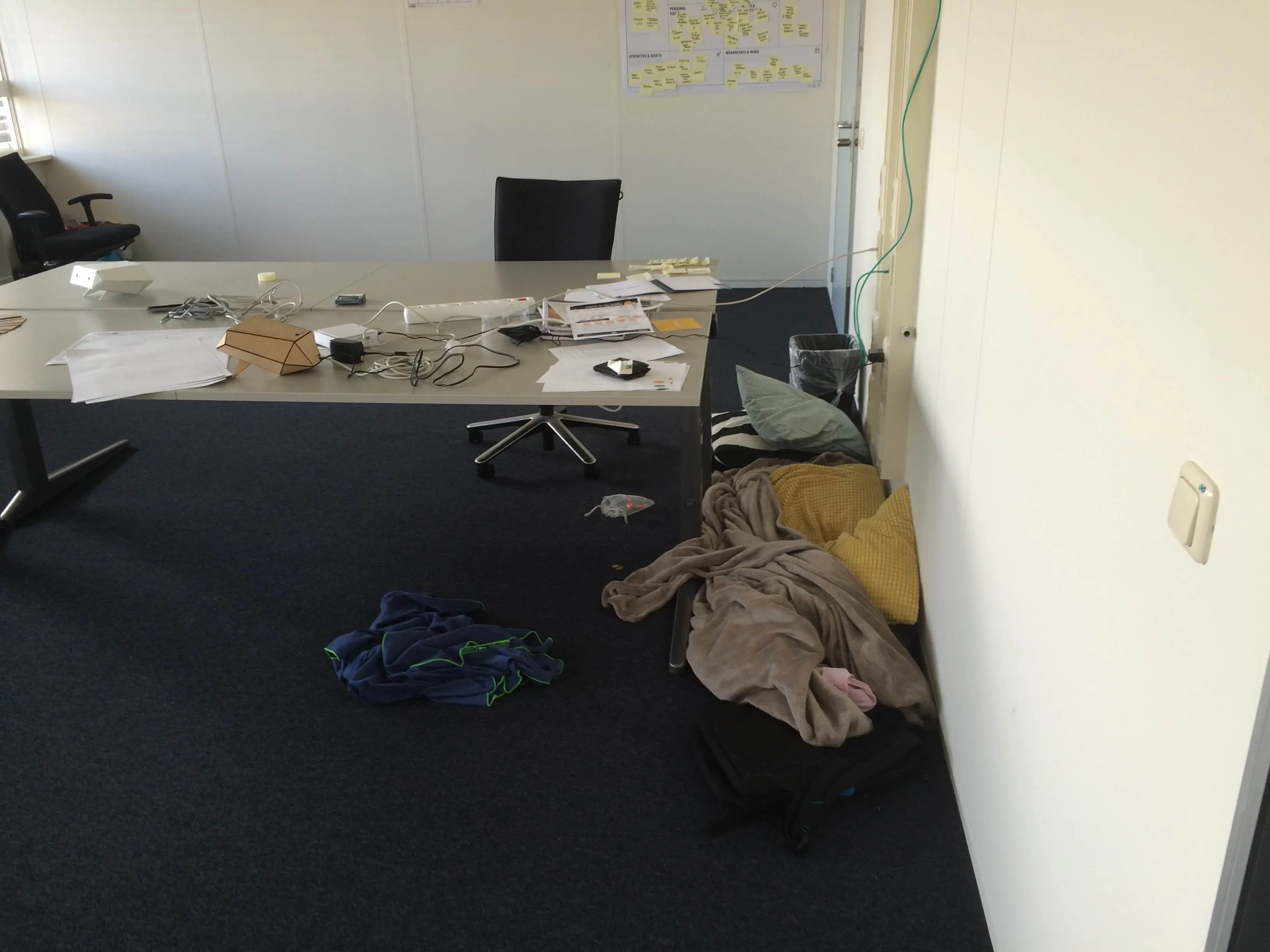Selling my startup on Acquire.com: Key things to know before
In September 2022, I sold Teamscope to StudyPages. This was the first time I sold a business, and I did it via Acquire.com, a platform that connects founders looking to sell with potential buyers. In this post, I shared what I learned along the way and what I wish I knew before.
.webp)
.webp)
Selling my startup on Acquire.com: Key things to know before
In September 2022, I sold Teamscope to StudyPages. This was the first time I sold a business, and I did it via Acquire.com, a platform that connects founders looking to sell with potential buyers. In this post, I shared what I learned along the way and what I wish I knew before.
Introduction
Teamscope is a platform for researchers to collect, organize, and analyze their data. I founded it in 2013 when I was 25 years old. I ran that business for 9 years and in September 2022, I sold it to StudyPages.
This startup changed my life.
It was because of Teamscope I immigrated to the Netherlands in 2015, travelled to more than 15 countries and had the chance to live in Bhutan, one of my favorite places in the world.
Letting go of this baby wasn't easy.
Who is this article for:
✅ You're a startup founder.
✅ You are looking to sell your business and you recently learned about Acquire.com.
✅ Your are looking a list of documents to include in your data room.
If you are a seasoned entrepreneur with a financial background, then you may find the concepts on this article very basic. Consider skipping it to save yourself the time.
.webp)

.webp)
The reason I sold it
The first round of funding came from Start-up Chile, a $40k equity-free grant. Then came Rockstart, which was a valuation round, and after that, two loans in the Netherlands, one from Rabobank and the second from Qredits.
As it always is when you get a loan, the plan was to use that debt to fuel revenue growth.
But, shit happens.
Revenue grew until it eventually plateaued. I was constantly late paying back the two banks and they were running out of patience.
At the same time, I felt a massive responsibility to our customers and thus needed to find a solution to guarantee business continuity.
Teamscope had been a beautiful ride and the time had come to let go.
What is Acquire.com
Acquire.com is a marketplace that helps entrepreneurs find a buyer for their startup.
The platform is free for founders. Instead, it charges potential buyers a yearly fee to access founder's contact details.

How Acquire.com works
Listings on the platform must be vetted by their team before going live.
By default all the buyers can see is an anonymous description of the startup, the market and competitors.
For the buyer to get the founder's contact details and full company details, they must first send a request to founder. Only after the founder has granted access can the buyer see the startup's name, revenue and the founder's profile.
This two-step process ensures the founder can filter who they enter into acquisition conversations with.
If this wasn't awesome enough, the platform has world-class human support and legal templates the buyer and seller can use for free.
Meeting the final buyer on Acquire.com
Within a month I received 26 messages from interested buyers.
The first messages came on the same day the listing went public.
I was immediately having video calls with potential buyers and seeing which would be a good fit.
One of the early conversations was with Eron and Koen, the founders of StudyPages, a platform for patient recruitment and engagement in clinical research.
Teamscope and StudyPages we were both in the same market, bootstrapped businesses, and we shared views on how clinical research can be disrupted.
After a few weeks of conversations, due diligence and a final virtual handshake, the deal was closed.
3 key details before selling
After going through the process of selling Teamscope, I've learned some valuable lessons. Here are my 3 big takeaways from this process.
1. The difference between an asset and a shares deal
It was on the second call I had with an interested buyer through Acquire.com. After explaining our debt situation, he asked, "alright, so are you looking then for an 'assets deal' or a 'shares deal'?"
I had no clue what he was asking about.
In my novice mind, I thought selling a business meant selling the whole company.
I learned, though, that you can sell the entire house or just the furniture. This is the difference between selling the shares versus the assets.
The shares include the totality of a company: capital, intellectual property, product, revenue, brand and debt.
On the other hand, the assets are just the things in a company that can generate revenue, for example, cash, brand, intellectual property and the product.
Selling only the assets—aka an assets deal—is simpler because you don't need a notary. Also, since the buyer is only acquiring the assets—a subset of the business—there is less due diligence required. This makes the acquisition process faster.
Although a selling the assets is faster and simpler, you may want to sell also the shares. Check with a lawyer or accountant on what makes the most sense for you.
Why we did an assets deal
StudyPages was based in the US company and Teamscope in the Netherlands. Doing a shares deal would have an overkill and cost an arm and a leg in notary fees.
Thus, we did an assets deal.
This meant that StudyPages did not buy the debt I had with the banks. After they wired the money from the acquisition I was responsible for paying back the banks and eventually closing down the company.
2. Have the data room ready
Once a buyer is interested, they will send you a letter of intent (LOI). Acquire.com offers an LOI builder.
After the LOI is signed, the buyer will have exclusivity over the deal and a time frame for them to do due diligence.
The first thing they will ask for is a "data room".
A data room is a fancy term for a Google Drive or Dropbox folder where confidential documents should be available for the buyer to review.
Some of the basic ones you will need are:
- Updated balance sheet and profit and loss statement
- List of subscribers or customers, ideally by market segment and revenue size
- Customer acquisition funnel for the last 12 months
- Financial forecast
- Organizational chart
- Tech stack:
- What is your platform's architecture and database schema?
- What scalability issues do you foresee?
- Have there been any security incidents?
- What practices have you used to ensure code quality?
- List of current shareholders, also known as your cap table.
- Debt analysis
- Litigations, hopefully none.
If you intend to sell your business one day, create that Google Drive folder with the critical documents for due diligence. Have those documents ready before a potential buyer asks for a data room.
I was lucky I could get all those documents together fast enough, but I won't run the risk next time.
3. Not properly valuing the business
You will need an asking price when you list your startup on Acquire.com. This is your startup's valuation.
The general rule for your asking price is: revenue from your last 12 months, aka TTM revenue (trailing twelve months), times a multiple.
The multiples will differ between industry and product type. For SaaS startups the revenue multiples range between 4 and 6 times.
Asking price = (Trailing 12 months revenue) x (revenue multiple)
This leads me to something I had never been explained well enough by previous investors and mentors. A startup's valuation, when you are fundraising, puts weight on sales forecasts. When you are being acquired, it's the opposite, the focus is on achieved revenue.
Don't be tricked into thinking your startup is worth the same or a higher valuation when it was fundraising.
It all depends on what your revenue was the last 12 months.
Conclusion
Time will tell when I will be going live again on Acquire.com with another venture looking for an acquisition possibility, but if there is something that Teamscope taught me is to do things with the end in mind.
In an acquisition, this means ensuring you have a data room ready months before going into negotiations, knowing beforehand if you will do a shares or an assets deal and understanding acquisition valuations.
Thanks for reading all the way through. If you are about to go live on Acquire.com, enjoy the ride.
To the team at Acquire.com, thanks for the help. Please don't stop what you are doing! 💜
.jpeg)
.png)

